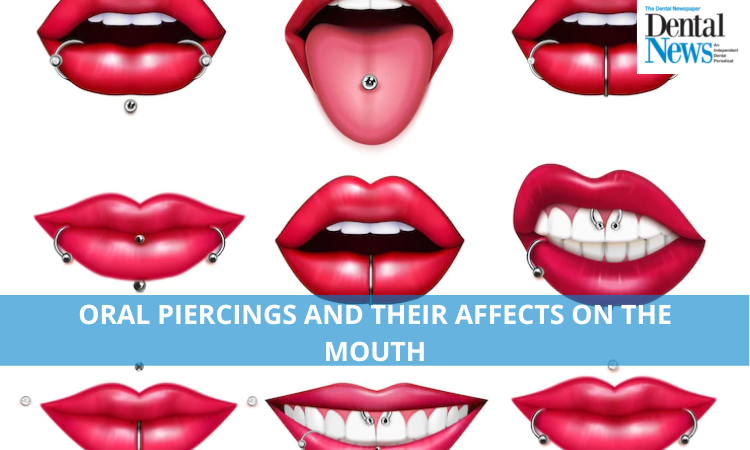
Tongue Piercings: What are they?
A tongue piercing is a sort of body piercing that is inserted straight into the tongue. A fascinating fact about mouth piercings is that they have a long history as forms of self-expression and body alteration. Oral jewellery and teeth decoration was widespread throughout the world's cultures, from the ancient Mayan civilization to present-day Central America.
Gold crowns, dental grills, and other artistic oral jewellery are still used today. Even yet, tongue piercing is thought to be the most widespread kind of oral piercing. Unlike perioral, oral piercings, which have one end in the mouth and one end that penetrates the skin's surface, this form of piercing is classed as "intraoral," meaning both ends of the jewellery are located in the mouth.
A piece of foreign metal is permanently inserted into your mouth when you get a tongue, lip, or other type of piercing. There are a variety of health issues that this metal may bring on, from minor to significant ones:
Having bad breath
A plaque has a new hiding place due to mouth jewellery. Plaque can accumulate over time because brushing around studs on the tongue or rings on the lips is more difficult. Your breath may begin to smell if you don't routinely clean your oral piercing.
Swelling, pain, and infection
Oral piercings can cause infections, even if they are performed in a clean atmosphere. Due to the moisture in your mouth, infections are more likely to occur there. In order to avoid having trouble breathing, keep an eye out for swelling in your tongue. If the piercing site is bothering you in any way, see a doctor.
Nerve Injury
On rare occasions, a piercing might make your tongue seem numb. The numbness is mostly transient but could occasionally last forever. Your sense of taste and your ability to speak clearly can both be impacted by a numbed tongue. Pick a piercing shop with experience and a good reputation to prevent nerve injury.
Broken teeth
Most people who get their lips or tongues pierced give in to the urge to bite at or play with the jewellery. You are more prone to having a tooth chipped or scratched if you have a hard object in your mouth.
Salivating
Mouth piercings increase saliva production. Saliva can make you more likely to drool, but it also helps prevent cavities.
Crooked Teeth
The space between your front two teeth can widen due to tongue piercings; however, this symptom is uncommon. This is referred to as a diastema.
Compromised dental work
Additionally, the metal from a piercing can harm your mouth's pricey dental work. Braces, crowns, and bridges can all be damaged by piercings, which can also knock out fillings.
Tooth decay
Your enamel may gradually erode if you make it a practice of rubbing mouth jewellery against your teeth. Additionally, you can be more susceptible to dental sensitivity and cavities.
Receding Gums
Up to 35% of persons with tongue piercings for four years or more develop receding gums. The gums receded as a result of the piercing's action against them, revealing the dentin beneath. Lip piercings impact the gums in front of the lower teeth, whereas tongue piercings typically harm the gums behind the front lower teeth.
Periodontitis
Periodontitis can develop from gum damage if you let it continue to progress uncontrolled. This disease arises when the inner layer of the gums and bone pulls away from the teeth. Teeth may become loose or even fall out due to pockets.
How to protect your piercing and prevent issues
Although having your tongue pierced puts your teeth in danger, you can adopt some healthy behaviours to prevent these problems with your dental health. Take a look at these advice on maintaining your piercing.
- Use a soft-bristle toothbrush and fluoride toothpaste to brush your teeth twice per day.
Use a tool for interdental cleaning or floss every day.
Use a mouthwash free of alcohol both during and after the healing process.
Maintain a clean piercing site, refrain from handling the jewellery, and watch out for any signs of infection, which include swelling, pain, tenderness, or discharge. Whenever you notice any infection-related symptoms, call your dentist right away.
If you engage in any contact sports, take off your jewellery and put on a mouthguard.
You risk choking if the jewellery is loose or comes loose; therefore, check the tightness of the jewellery with clean hands.
Although getting pierced can satisfy your drive for self-expression, the American Dental Association warns against it since the hazards to your oral health exceed the advantages. However, to maintain the best possible state of oral health, talk to your dentist about any piercings you have or plan to undergo.

Dr Amna Bilal
The author is a contributing writer at Dental News Pakistan and can be reached at amna0795@yahoo.com

